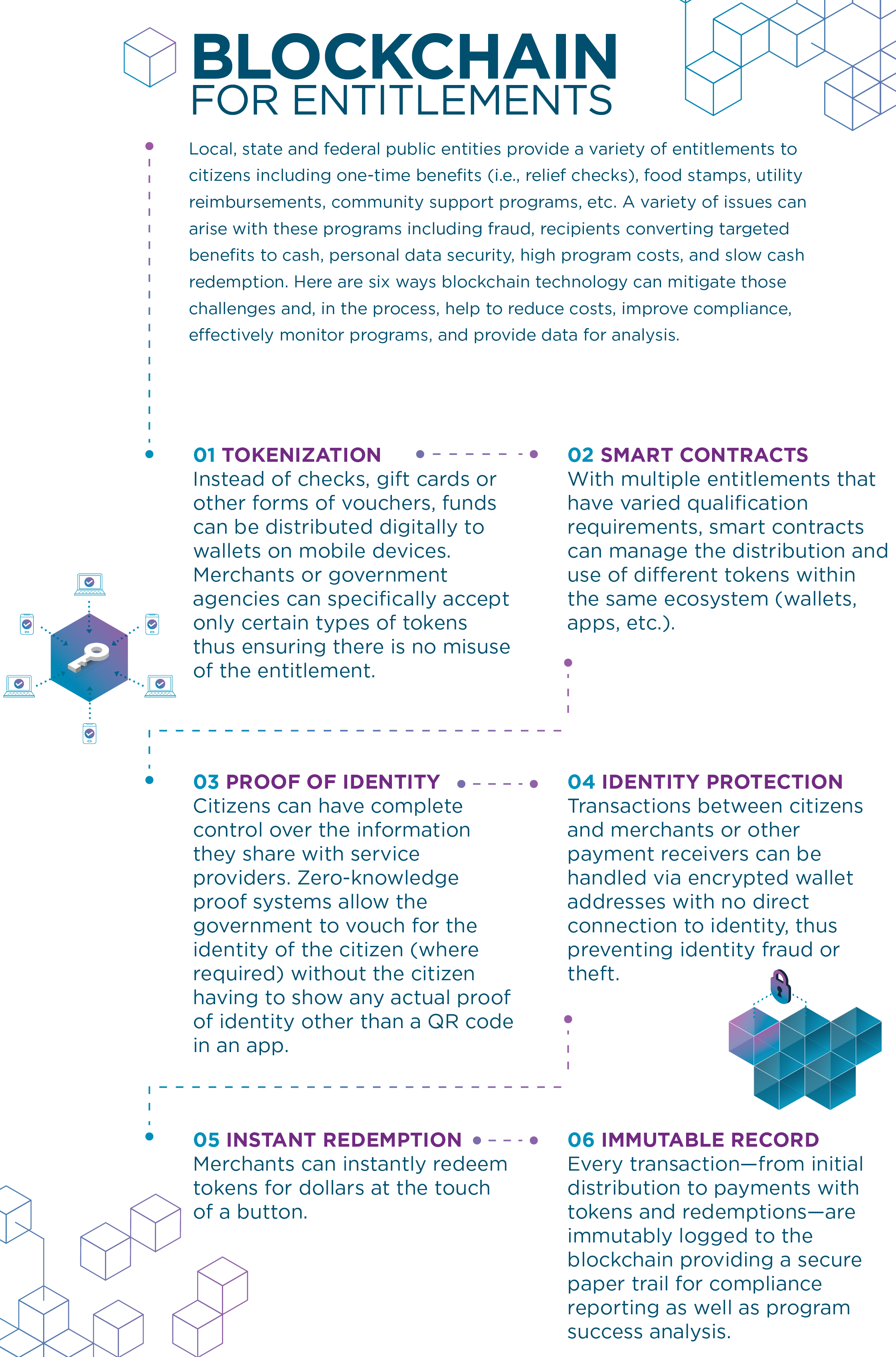Government entities provide a variety of entitlements to citizens including one-time benefits, food stamps, utility reimbursements, and community support programs, among others. A variety of issues can arise with these programs such as fraud, data security, high program costs, and slow cash redemption. CompTIA’s Blockchain Advisory Council identified six ways blockchain technology can help solve those challenges. Download the infographic.

Instead of checks, gift cards or other forms of vouchers, funds can be distributed digitally to wallets on mobile devices. Merchants or government agencies can specifically accept only certain types of tokens thus ensuring there is no misuse of the entitlement.
With multiple entitlements that have varied qualification requirements, smart contracts can manage the distribution and use of different tokens within the same ecosystem (wallets, apps, etc.).
Citizens can have complete control over the information they share with service providers. Zero-knowledge proof systems allow the government to vouch for the identity of the citizen (where required) without the citizen having to show any actual proof of identity other than a QR code in an app.
Transactions between citizens and merchants or other payment receivers can be handled via encrypted wallet addresses with no direct connection to identity, thus preventing identity fraud or theft.
Merchants can instantly redeem tokens for dollars at the touch of a button.
Every transaction—from initial distribution to payments with tokens and redemptions—are immutably logged to the blockchain providing a secure paper trail for compliance reporting as well as program success analysis.
Read more about technology solutions.
The Blockchain Technology Interest Group is your destination for online discussions, resources, and networking with individuals and businesses dedicated to blockchain technology. Get access to a dedicated online forum when you join now for free.